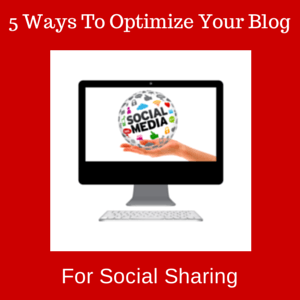The 3 kinds of networks you need in your career
In his new book ?Careers Unleashed,? Asad Husain shares how to build a robust and authentic professional network.
BY Asad Husain
In 2010, I was working for Dun & Bradstreet, based in New Jersey, as VP of HR International. I received a message from a former Gillette Pakistan colleague. It was a pleasant surprise. I had hired her for the HR function at Gillette Pakistan in 1996. I left for Gillette’s World Headquarters in Boston a few months later, but she had already created a good impression on me through her performance, learning agility, and attitude. We were now connecting after a gap of 14 years. She told me she was also living in New Jersey and working on a contract as a Total Rewards consultant in New York. By coincidence, my company was also looking for a Total Rewards professional. I referred her to our company VP of Total Rewards. She was interviewed and got the job.
What’s the point in sharing this with you? This is a good example of the multiplier impact of networking:
- She has continuously built and expanded her network throughout her career. This has created job opportunities for her and allowed her to determine the lifestyle she wants. She has done this through her performance, attitude, and relationship-building.
- She and I worked together for only a few months, but 14 years later, I still remembered her capabilities and attitude, and she took the initiative to reach out to her network. Once she joined Dun & Bradstreet, she further expanded her network in the Total Rewards space, leading her to several more opportunities.
- She has now built up a robust network in the Total Rewards space and is sought for her experience and skills. She can take breaks when she feels appropriate, knowing that she has built up a strong network where opportunities for her abound.
The world of work is changing and, on average, you are going to work for 12 or more companies in your career. You will also need to unlearn and relearn skills and knowledge. Part of this means that you will have to look at networking in a new way. You will need a networking strategy for yourself.
Networking is no longer about contacting your connections when you need a job or are considering a change. You need to continuously build your network. The stronger your network, the better you will be able to navigate change in the workplace. By building a solid network, you can create opportunities for yourself. Most people reach out to their connections when they need a job without having nurtured those connections over time. The result is often that those connections can’t help, and you may feel let down. If you are intentionally building and nurturing your network, it is more likely that you will get access to the hidden job market—jobs that are not advertised or posted—and you will discover that opportunities will find you versus your finding opportunities.
At work, we create impressions of ourselves with people around us. These impressions are a great starting point for building networks. Many of these colleagues are going to work somewhere else in time. You need to view everyone at work as a potential addition to your network. I have plotted my career journey in a chart, from my MBA to where I am now. At each step, I created an impression on the people I studied or worked with, consciously or unconsciously. Somewhere along the way, I realized I needed to intentionally nurture these connections as my network. It paid off well. My first break as a head of HR of a company came through a connection I made as a trainee in Boston 18 years earlier, and the two biggest jobs I have had in my career have come through the network I intentionally nurtured.
Networking today is about more than just finding jobs. It is also about gaining knowledge, learning new skills, and seeing and anticipating changes. When you work in a company, you are usually focused on the work and challenges your company faces. But you must find time to look outside your company and build broader connections in your industry and profession. For example, if you nurture a LinkedIn “thought leadership” network, you will learn new perspectives and likely see where businesses and occupations are headed, given the challenges.
Over the years, I have built three kinds of networks. Your own networks should be evaluated depending on where you are in your career and what your current aspirations are:
- The first network concerns future jobs that you are interested in or might need to consider. (Ask yourself: What is my next likely job? Who do I have in my network that can help me identify future opportunities?)
- The second is your knowledge and learning network. (Ask yourself: What do I need to learn and know more about? Who do I have in my network who can help me with this?)
- The third is your network of people you want to advise, coach, or mentor. (Ask yourself: What can I help others with in my profession or industry? Who do I have in my network that I can help?)
As you reflect on and embrace these networking strategies, remember that the key to success lies in the strategies themselves and your willingness to embrace them and take action. Embracing and acting on these strategies puts the future of your career squarely in your hands.
Excerpt adapted with permission from Careers Unleashed by Asad Husain.
Asad Husain is the author of Careers Unleashed, a four-time chief human resource officer, and future-focused Human Resources leader who is passionate about inspiring and influencing people worldwide to achieve their career aspirations. He has 31 years of experience contributing to organizational growth and individual success in companies that include the Gillette Company, Procter & Gamble, Dun & Bradstreet, Del Monte, Big Heart Pet Brands, and C&S Wholesale Grocers. Now, he is directing his focus to helping people identify their dream careers and navigate toward them.

ABOUT THE AUTHOR
Fast Company
(10)
Report Post








